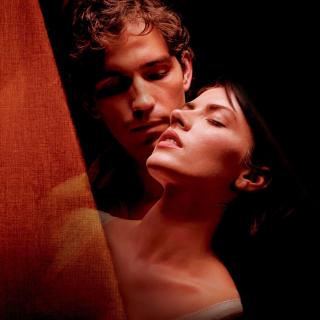
介绍:
Chapter 24. The Secret Cave
The sun had nearly reached the meridian, and his scorching rays fell full on the rocks, which seemed themselves sensible of the heat. Thousands of grasshoppers, hidden in the bushes, chirped with a monotonous and dull note; the leaves of the myrtle and olive trees waved and rustled in the wind. At every step that Edmond took he disturbed the lizards glittering with the hues of the emerald; afar off he saw the wild goats bounding from crag to crag. In a word, the island was inhabited, yet Edmond felt himself alone, guided by the hand of God.
He felt an indescribable sensation somewhat akin to dread—that dread of the daylight which even in the desert makes us fear we are watched and observed. This feeling was so strong that at the moment when Edmond was about to begin his labor, he stopped, laid down his pickaxe, seized his gun, mounted to the summit of the highest rock, and from thence gazed round in every direction.
But it was not upon Corsica, the very houses of which he could distinguish; or on Sardinia; or on the Island of Elba, with its historical associations; or upon the almost imperceptible line that to the experienced eye of a sailor alone revealed the coast of Genoa the proud, and Leghorn the commercial, that he gazed. It was at the brigantine that had left in the morning, and the tartan that had just set sail, that Edmond fixed his eyes.
The first was just disappearing in the straits of Bonifacio; the other, following an opposite direction, was about to round the Island of Corsica.
This sight reassured him. He then looked at the objects near him. He saw that he was on the highest point of the island,—a statue on this vast pedestal of granite, nothing human appearing in sight, while the blue ocean beat against the base of the island, and covered it with a fringe of foam. Then he descended with cautious and slow step, for he dreaded lest an accident similar to that he had so adroitly feigned should happen in reality.
Dantès, as we have said, had traced the marks along the rocks, and he had noticed that they led to a small creek, which was hidden like the bath of some ancient nymph. This creek was sufficiently wide at its mouth, and deep in the centre, to admit of the entrance of a small vessel of the lugger class, which would be perfectly concealed from observation.
Then following the clew that, in the hands of the Abbé Faria, had been so skilfully used to guide him through the Dædalian labyrinth of probabilities, he thought that the Cardinal Spada, anxious not to be watched, had entered the creek, concealed his little barque, followed the line marked by the notches in the rock, and at the end of it had buried his treasure. It was this idea that had brought Dantès back to the circular rock. One thing only perplexed Edmond, and destroyed his theory. How could this rock, which weighed several tons, have been lifted to this spot, without the aid of many men?
Suddenly an idea flashed across his mind. Instead of raising it, thought he, they have lowered it. And he sprang from the rock in order to inspect the base on which it had formerly stood.
He soon perceived that a slope had been formed, and the rock had slid along this until it stopped at the spot it now occupied. A large stone had served as a wedge; flints and pebbles had been inserted around it, so as to conceal the orifice; this species of masonry had been covered with earth, and grass and weeds had grown there, moss had clung to the stones, myrtle-bushes had taken root, and the old rock seemed fixed to the earth.

